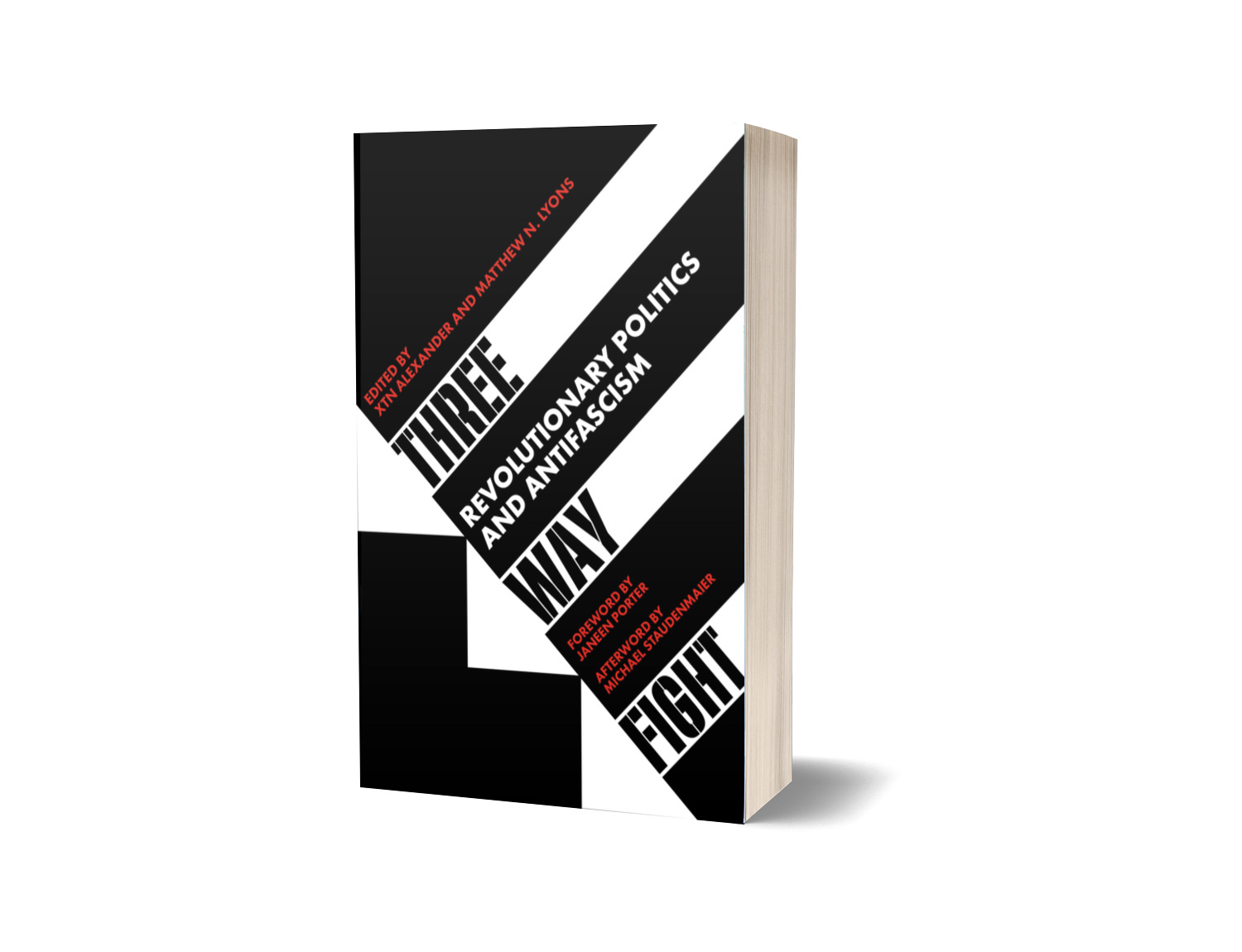By Ron Jacobs
MorningStar UK
RON JACOBS recommends a new collection of essays that examine the presence of fascism in the US and the struggle against it
DONALD TRUMP is certainly the figure around which fascists in the United States have flocked to more than any other politician, but the movement does not need him as much as he needs the movement.
Fascists and fascist sympathisers have become more brazen in the years since Trump was elected in 2016. The last time such extremely racist and misogynist arguments were heard on such a large stage was in the late 1960s and early ’70s when George Wallace ran for president.
Today, we live in a world where the president of the US has surrounded himself with men and women who not only repeat Wallace’s bigoted politics but use his power to enforce them.
Like those Southern governors of the US apartheid era, Trump has a fair number of well-armed men willing to kill for the beliefs he embodies for them: about the United States, capitalism and the fear that permeates the white supremacist segment of the US population — that they are losing the ultimate power they have enjoyed since the beginning of the colonisation of North America.
History moves forward. These folks want to turn it back.
As BBC reporter Mike Wendling describes in his book Day of Reckoning: How the Far Right Declared War on Democracy, the coalition of forces hoping to do that is unlike previous conglomerations that worked for the same goals.
In addition to the Klan, other racist groups, various traditional far-right groups, and conservative businessmen associations, this new right-wing counter-revolution also includes nominally libertarian Proud Boys, right-wing militias, fascist and otherwise, real fascists, alt-right influencers, and a mixed bag of conspiracy theorists. Most prominent among the latter are those who gather under the QAnon umbrella of anti-vaxxers, burn-outs, and conspiracy theorists.
Writing in accessible prose, Wendling’s text introduces these players and a few more, such as the founder of the Proud Boys, Stuart Rhodes. Trump told this group to be ready should Trump lose the 2020 election. Rhodes and hundreds of others took Trump’s words to heart. Many of them are now in prison, hoping for a Trump victory in November and a pardon in January 2025.
A recent collection of essays edited by XTN Alexander and Matthew N Lyons dives considerably deeper into the presence of fascism in the US and the struggle against it. Lyons is a long-time anti-fascist organiser and commentator.
Titled Three-Way Fight: Revolutionary Politics and Antifascism, this book is perhaps best understood as a prequel to Day of Reckoning. In addition, its politics are considerably more left. It is a collection of documents and essays discussing and describing fascist movements and the resistance to them in the US.
This book begins with a classic piece of the US anti-fascist movement written in 1982 and distributed by the radical Sojourner Truth organisation. It concludes with a collection of essays regarding the rebellion in 2020 after the police murder of George Floyd.
In between, the reader will find a discussion of anti-imperialism in an article titled Fascism In The Antiwar Movement, which looks at the difference between leftist anti-imperialism and other manifestations of anti-imperialism, such as that expounded by paleoconservatives and right-libertarians like those who run the Antiwar.com website. This article also discusses the politics of the more authoritarian left groups like the Workers World Party, who tended to support authoritarian rulers like Saddam Hussein just because they opposed US imperialism.
There’s also a history of the group White Aryan Resistance (WAR), a group founded by former Klansman Tom Metzger and focused on youth organising. The essay looks at WAR’s actions, organising and eventual dissolution due to constant harassment by grassroots antifascist organisations like Skinheads Against Racial Prejudice (Sharp) that brought their militant campaign to the heart of WAR.
The United States remains in a politically volatile moment. The distinction between right-wing Establishment politicians and right-wing groups and militias in the streets has shrunk considerably since the 2016 election of Trump. Meanwhile, the liberal wing of the Establishment political party system has been unable to effectively respond.
Indeed, the fact that Trump has yet to be imprisoned, much less tried, for most of the crimes he is accused of, provides us with a clear look at how ineffective the US system of capitalist law and order is when it comes to going after right-wing political criminals, and especially those who are extremely wealthy.
Given the facts of history, it seems unlikely that the liberal power elites will respond effectively to any reactionary violence that happens in the election’s wake. Now that Trump has won, one can be even more certain that the liberal power elites will do little to prevent the authoritarian havoc he has promised.






